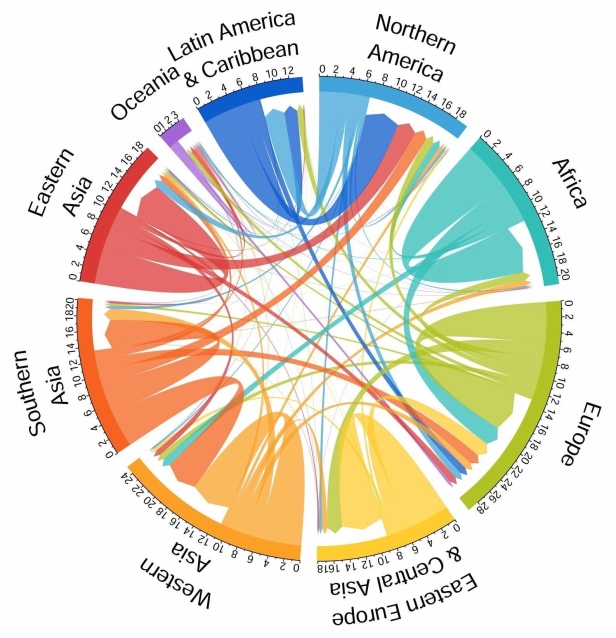“Migrant” has become a very charged label in today’s political discourse, to the point that those of us who work with migrant and seasonal farmworkers (MSFWs) are constantly having to clarify what we mean by the word, lest our organizations become a lightning rod for anyone’s political displeasure. It’s even coming through farmworker kids’ essays for our annual CIFC Art & Essay contest, like the following excerpt by Laura, an 11-year-old girl from Nevada:
In today’s society, migrants are often confused with immigrants from other countries, but our reality as migrant farmworkers is very different. As children of migrant farmworkers, many students have to move throughout the year to different states, changing schools which makes them have trouble with their grades.
On this International Migrants Day, however, we stand in solidarity with all migrants, be they international migrants i.e. immigrants; refugees; or migrants who travel for work without crossing borders, like migrant and seasonal farmworkers. In reality, migrants of all stripes share a common struggle: that of being displaced as they pursue a (hopefully) more peaceful and prosperous life in a new place.

The experience of being displaced from one’s home – either involuntarily or by choice – has reverberating effects on migrants’ health. International migrants such as refugees have to grapple with the trauma that caused them to flee their country in the first place – meaning they arrive with conditions like depression and post-traumatic stress disorder (PTSD). On top of that, they then have the challenges of integrating into a new place, language, and culture, sometimes in a new town or city where they are made to feel disliked and unwelcome.

Migrant and seasonal farmworkers differ from international migrants in that they often follow the same migrant stream year after year. But that doesn’t mean it’s easy. In reality, they, too, experience the trauma of displacement and re-integration, and the fact that they do it every year simply means they experience this trauma on repeat.
“Migrant people struggle a lot not like other people. I’m a migrant, my family and me all struggle and other migrant people too. It is always hard to say goodbye [to friends] because those people made me feel happy. I [migrate] often and it is heartbreaking to leave … I am sad but I am used to it, but I always have to leave someone I treasure a lot. That hurts more than ever.” – Alany, age 10
As Laura mentioned in her essay, farmworker kids feel uprooted every single time they get transferred from school to school. They miss old friends and have a hard time assimilating into fresh social circles at schools that might not be used to accommodating kids with the particular needs of children of migrant workers. And of course, catching up on missed material is hard and extra discouraging when you know you have to do it year after year.
Meanwhile, farmworker parents scramble to find housing, having to double-up with relatives or make due with sub-standard living conditions just so they have a place to rest their heads at night. Their home life is probably not that comfortable (to say the least!), and working long hours as a family in the fields means they aren’t spending that much time indoors, resting, anyway.
AFOP Health & Safety does our part to make migrant farmworkers’ lives easier, by helping them mitigate the harmful effects of pesticide exposure, heat stress, and more. But at the end of the day, the (im)migrant life is always going to be a tough life. On International Migrants Day, let’s acknowledge migrants’ struggles and support all of them in the pursuit of their dreams.
Like this blog? Read our 2016 reflections on International Migrants Day!

